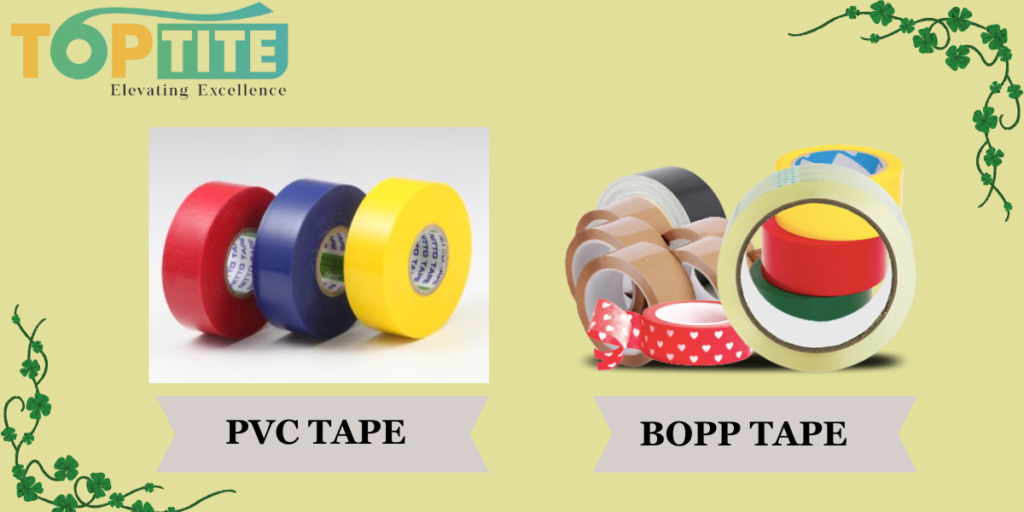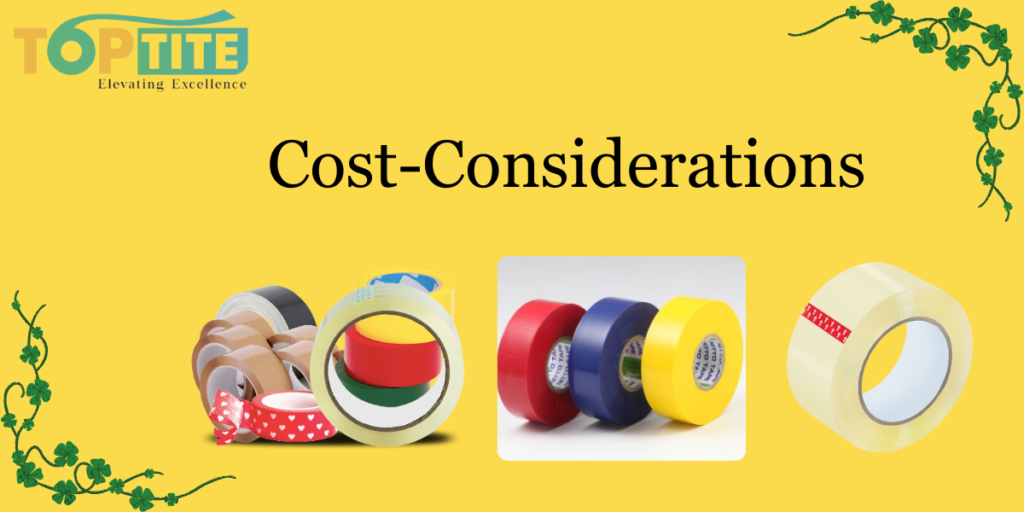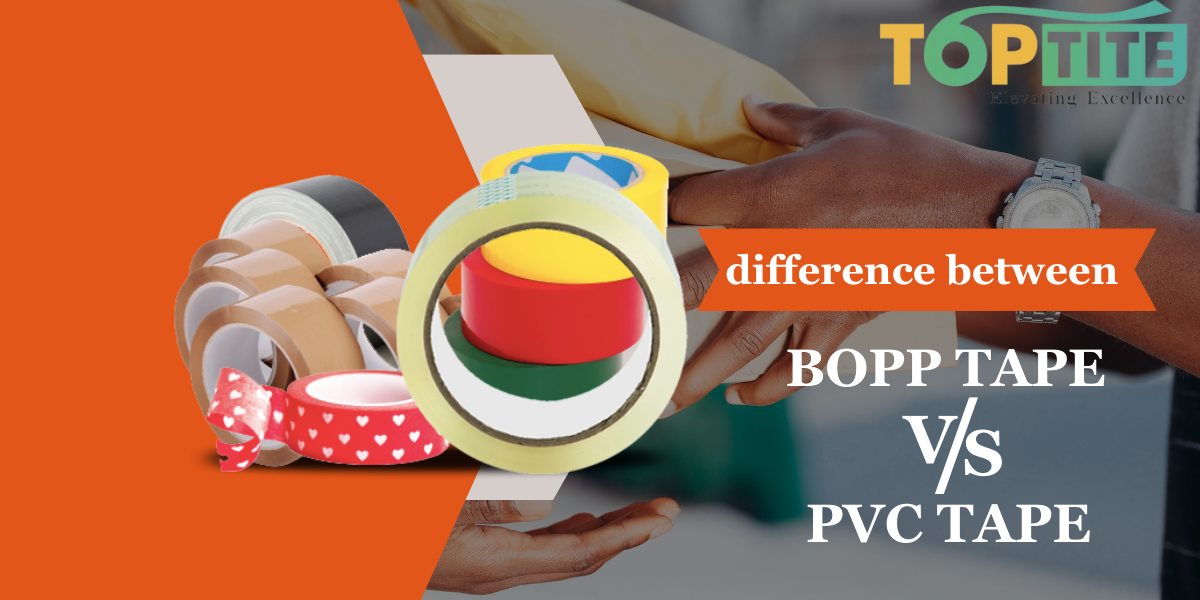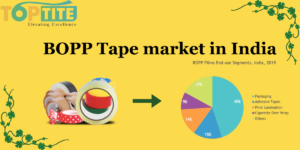Introduction :-
In the world of packaging and sealing, the choice of tape can significantly impact the integrity and presentation of a package. Among the myriad options available, two types stand out: BOPP (Biaxially Oriented Polypropylene) tape and PVC (Polyvinyl Chloride) tape. While both serve the purpose of sealing packages, they differ in composition, performance, and suitability for various applications. Let’s delve into the nuances of these two types of tapes to understand their differences and determine which one might be the right choice for your needs.

Composition and Material Properties :-
BOPP Tape :-
BOPP tape is made from Biaxially Oriented Polypropylene film, which undergoes a process of stretching in two directions to enhance its strength and clarity. Polypropylene, a type of thermoplastic polymer, forms the base material for BOPP tape. This material offers several advantages, including resistance to moisture, chemicals, and abrasion. BOPP tape is also known for its excellent clarity and ability to maintain its adhesive properties over a wide range of temperatures.
PVC Tape :-
In contrast, PVC tape is composed of Polyvinyl Chloride, a versatile synthetic polymer known for its durability and flexibility. PVC tape typically features a rubber-based adhesive, which provides strong adhesion to a variety of surfaces. PVC tape is characterized by its ability to conform to irregular shapes and surfaces, making it suitable for applications where flexibility is crucial.
Adhesive Properties :-
BOPP Tape :-
BOPP tape often features an acrylic adhesive, which offers strong initial tack and long-term adhesion. Acrylic adhesives are resistant to aging, UV light, and temperature variations, making BOPP tape suitable for both indoor and outdoor applications. Additionally, BOPP tape is available in a variety of adhesive formulations to meet specific requirements, such as high tack or low residue.
PVC Tape :-
PVC tape typically utilizes a rubber-based adhesive, known for its aggressive tack and ability to adhere to a wide range of surfaces, including rough or uneven substrates. However, PVC tape may exhibit reduced resistance to UV light and temperature fluctuations compared to BOPP tape, making it more suitable for indoor applications or short-term packaging needs.
Environmental Considerations :-
BOPP Tape :-
BOPP tape is considered more environmentally friendly compared to PVC tape due to its composition of polypropylene, which is recyclable and poses fewer environmental concerns during production and disposal. Additionally, BOPP tape is available in water-based adhesive formulations, further reducing its environmental impact.
PVC Tape :-
PVC tape raises environmental concerns due to the presence of Polyvinyl Chloride, a material that contains chlorine and other additives that may release harmful substances during production or disposal. While efforts have been made to improve the environmental performance of PVC tape through recycling initiatives, its environmental footprint remains a subject of debate.
Applications :-
BOPP Tape :-
BOPP tape finds widespread use in various industries, including packaging, shipping, manufacturing, and logistics. Its excellent clarity makes it ideal for retail packaging applications where presentation is essential. BOPP tape is also suitable for sealing cardboard boxes, cartons, and other packaging materials due to its strength, durability, and resistance to moisture.
PVC Tape :-
PVC tape is commonly employed in applications requiring flexibility and conformability, such as bundling, splicing, and temporary repairs. Its ability to adhere to rough or irregular surfaces makes it suitable for sealing packages with non-standard shapes or textures. PVC tape is also used in electrical insulation applications due to its dielectric properties and resistance to moisture and chemicals.
Cost Considerations :-
BOPP Tape :-
BOPP tape is generally more cost-effective compared to PVC tape, making it a preferred choice for high-volume packaging operations or budget-conscious consumers. Its affordability, combined with its excellent performance characteristics, makes BOPP tape a popular option across various industries.
PVC Tape :-
While PVC tape may offer superior conformability and adhesion properties, it tends to be more expensive than BOPP tape due to the higher cost of raw materials and production processes. As such, PVC tape is often chosen for applications where its specific attributes justify the additional cost, such as demanding sealing or insulation requirements.

Conclusion :-
In summary, the choice between BOPP tape and PVC tape depends on various factors, including the specific application requirements, environmental considerations, budget constraints, and performance expectations. While both tapes serve the fundamental purpose of sealing packages, they differ in composition, adhesive properties, environmental impact, and suitability for different applications. By understanding these differences, you can make an informed decision and select the tape that best meets your needs, whether it’s the strength and clarity of BOPP tape or the flexibility and conformability of PVC tape.What is the difference between BOPP tape and PVC tape?




